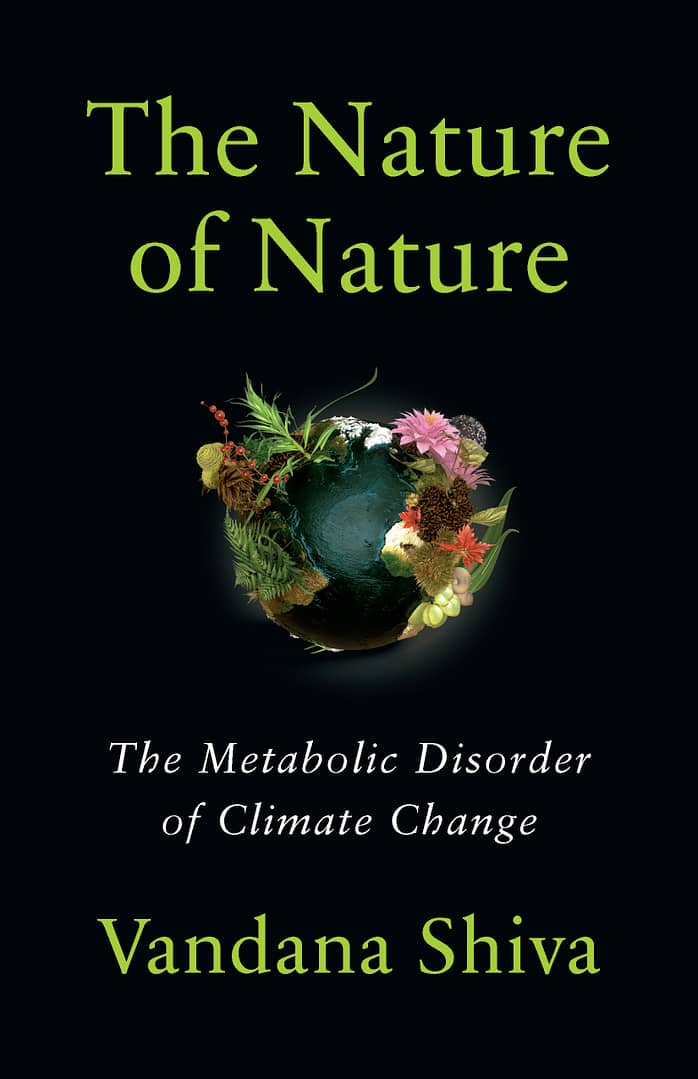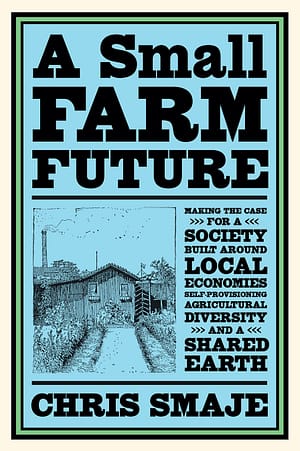| Pages: | 168 pages |
| Size: | 5.5 x 8.5 inch |
| Publisher: | Chelsea Green Publishing |
| Pub. Date: | October 17, 2024 |
| ISBN: | 9781645022879 |
The Nature of Nature
The Metabolic Disorder of Climate Change
Paperback
$19.95
In an age of climate catastrophes and extinction, we need to turn back to nature and learn, once again, how to live sustainably on planet Earth—beginning with our relationship to food.
Four billion years ago, Earth was a hot, lifeless planet. Through the process of evolution, the Earth and its diversity of living organisms gradually reduced the amount of carbon in the atmosphere. About 200,000 years ago, the conditions aligned for our own species—Homo sapiens—to emerge and thrive.
But what will it take to continue to survive?
In The Nature of Nature, world-renowned environmental thinker and activist Vandana Shiva argues that food is the currency of life, a thread woven throughout the web of all life, indivisible from Earth and its natural systems. When this interdependence is ruptured—as it is now—the conditions for the “metabolic disorder” of climate change and countless other ecological imbalances come into being.
Proposals put forward by Big Ag and Big Tech to solve the intertwined climate and food crises will only exacerbate both. With clarity and a detailed analysis, Shiva unpacks the false promises made by technology-oriented, lab-intensive digital agriculture, revealing the dangers posed by fake and ultra-processed foods—dangers to the environment, to increasing greenhouse gas emissions, to the health of animals, and to our health and food security.
In The Nature of Nature, Shiva takes a powerful stand, arguing with urgency and passion for a food and climate future based not on techno-optimism, hallucination, and corporate delusions, but on the natural regeneration of biodiversity in partnership with the biosphere.
Praise for Vandana Shiva:
“She’s been called the ‘Gandhi of grain,’ the ‘rock star’ of the anti-GMO movement and an ‘eco-warrior goddess.’ . . . Above all, [she] is a staunch believer that the food we eat matters. It makes us who we are, physically, culturally and spiritually.”—BBC
Reviews and Praise
“Vandana’s is a clear, indefatigable voice of outstanding intellect and compassion, of deliberate and compelling outrage in our planetary crisis. She is a privilege to know and learn from in my lifetime.”
—Professor Marilyn Waring, author of If Women Counted: A New Feminist Economics
More Reviews and Praise
“Vandana Shiva’s pioneering efforts to expose how a GMO- and fossil fuel–based petrochemical agricultural system has wreaked havoc on our species’ global food chain and undermined ecosystems around the world have touched off a worldwide conversation. She has singlehandedly drawn several generations into regenerative agriculture and ecosystem restoration, particularly in developing countries. Her new book makes the incontrovertible connection between a warming climate and an outmoded agricultural system and guides our species into a more ecologically sensitive approach to provisioning food by treating nature as a shared commons for all of life on Earth.”
—Jeremy Rifkin, economic and social theorist; writer; activist








